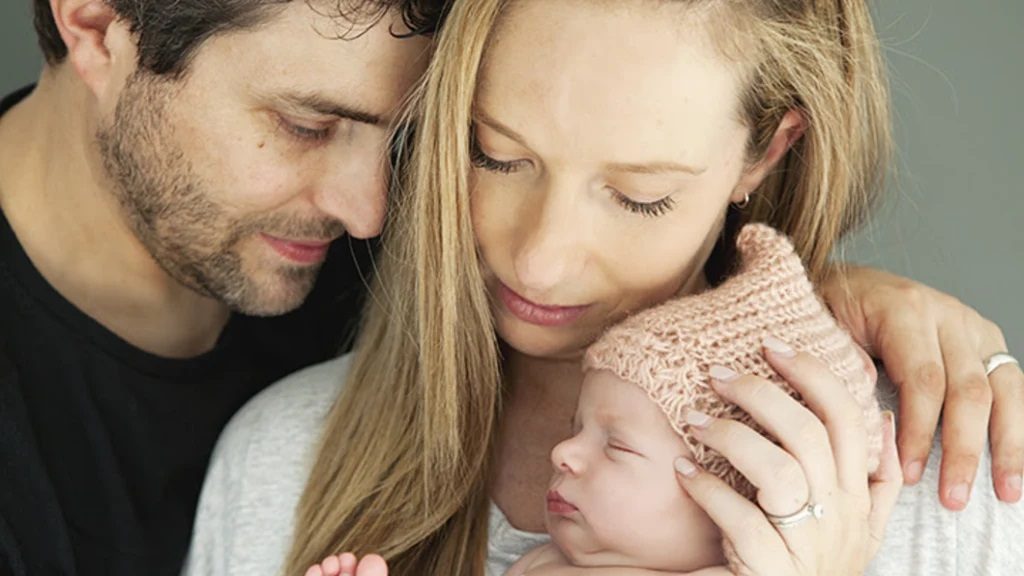All would-be mothers should be offered genetic screening to detect severe or deadly conditions they could pass onto their children, including cystic fibrosis and spinal muscular atrophy (SMA), radical new national guidelines say.
The Royal Australian and New Zealand College of Obstetricians and Gynaecologists (RANZCOG) now recommends that every woman planning a pregnancy or in their first trimester should be given information about preconception carrier screening.

It’s a major departure from the old guidelines, which recommended carrier screening be offered to “high risk” women only, and it could have major implications for Australian families.
The tests costs $350 to $900 (up to $1800 for couples) and is not covered by Medicare, prompting concerns that only wealthy aspiring parents can take this precaution in a bid to avoid having a baby with debilitating or fatal genetic conditions.
Genetic testing technology has advanced rapidly over the past decade, with large gene panel sequencing enabling couples to be tested for many mutations at once.
Steve Robson, who led RANZCOG’s Genomics Advisory Working Group & Women’s Health Committee that updated the guidelines, said carrier testing technology enabled would-be parents to find out if they carried these “silent mutations”.

“The feedback we got from the community was that the time is right to recommend it,” Professor Robson, from ANU and a part-president of RANZCOG, said.
The recommendations were “all about choice”.
“Yes, the tests are expensive now … but costs are coming down, and the government is committed to a genomic future so we’re hoping that Medicare will cover these costs in time.”
The landmark Mackenzie’s Mission trial will begin recruiting 10,000 Australian couples to be screened for 500 severe and deadly genetic conditions later this year.
The $20 million federal government-funded trial is named after the daughter of Rachael and Jonathan Casella, who died at seven months from SMA.
The results of the trial are expected to inform whether the federal government will introduce Medicare subsidies for carrier screening.
The onus would fall on GPs to inform couples about screening.
Wendy Burton, chairwoman of the Royal Australian and New Zealand College of GPs’ Specific Interests Antenatal group said the guidelines were reasonable, given rapid progress and availability of genetic testing.
But the cost of the tests and a lack of Medicare subsidies would lead to inequitable access.
“Some people simply can’t afford it, and it’s not provided by public services,” Dr Burton said.
The challenge would be ensuring GPs and patients understood the layers of complexity involved.
“There may be an assumption that we can test for everything, but we can’t,” Dr Burton said.
“Just testing for everything blindly might create more problems than it resolves. It’s a case of, ‘Don’t ask the questions if you don’t want the answers,’ ” she said.
Martin Delatycki, clinical director of the Victorian Clinical Genetics Services and member of the Genomics Advisory Working Group, said GPs and obstetricians would need to upskill to feel comfortable discussing the screening with couples.
Would-be parents must consider why they want – or don’t want – to be tested, he said.
“If you are not planning to take any action if you find you have an increased chance of having a child with a certain genetic condition, then maybe it’s not the right thing for you.
“But if you want to take steps to avoid having a child with that condition then it is important that you have that screening,” Professor Delatycki said.
Having no family history of a genetic disorder did not mean couples were not at increased risk of having an affected child.
“More than 95 per cent of babies with cystic fibrosis were born to parents who were not aware of any family history of the condition,” he said.
The guidelines recommend that all couples found to be at high risk of having a child with a genetic condition should be referred for genetic counselling to understand their options.
They may choose one of a number of options: to have a child and have the test after birth to see if the child has the disorder; to undergo testing during pregnancy to determine if the fetus is affected; to undergo IVF and to test embryos for the genetic mutation; to use donor sperm, eggs or embryos; to adopt; or not to have children.

